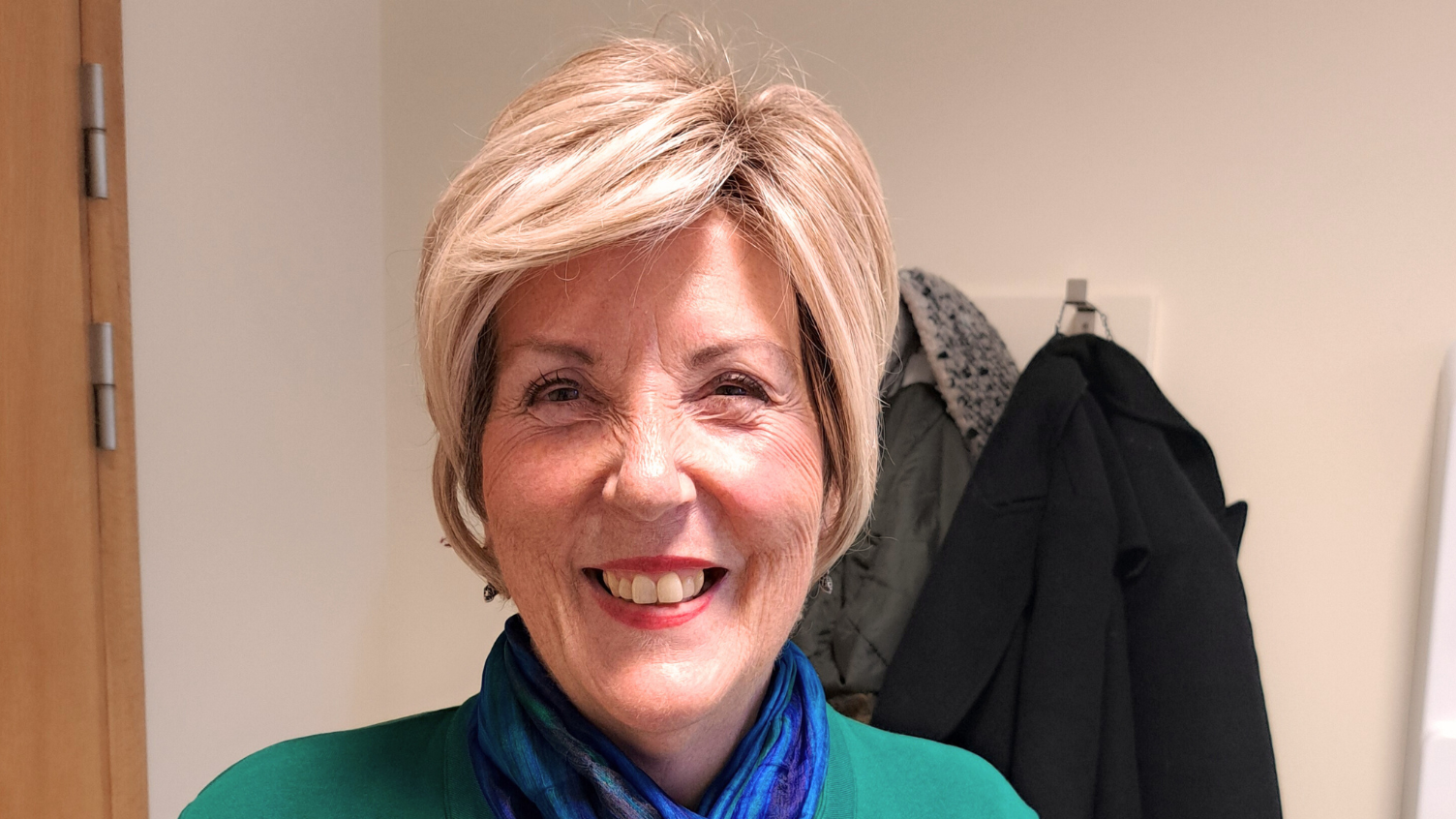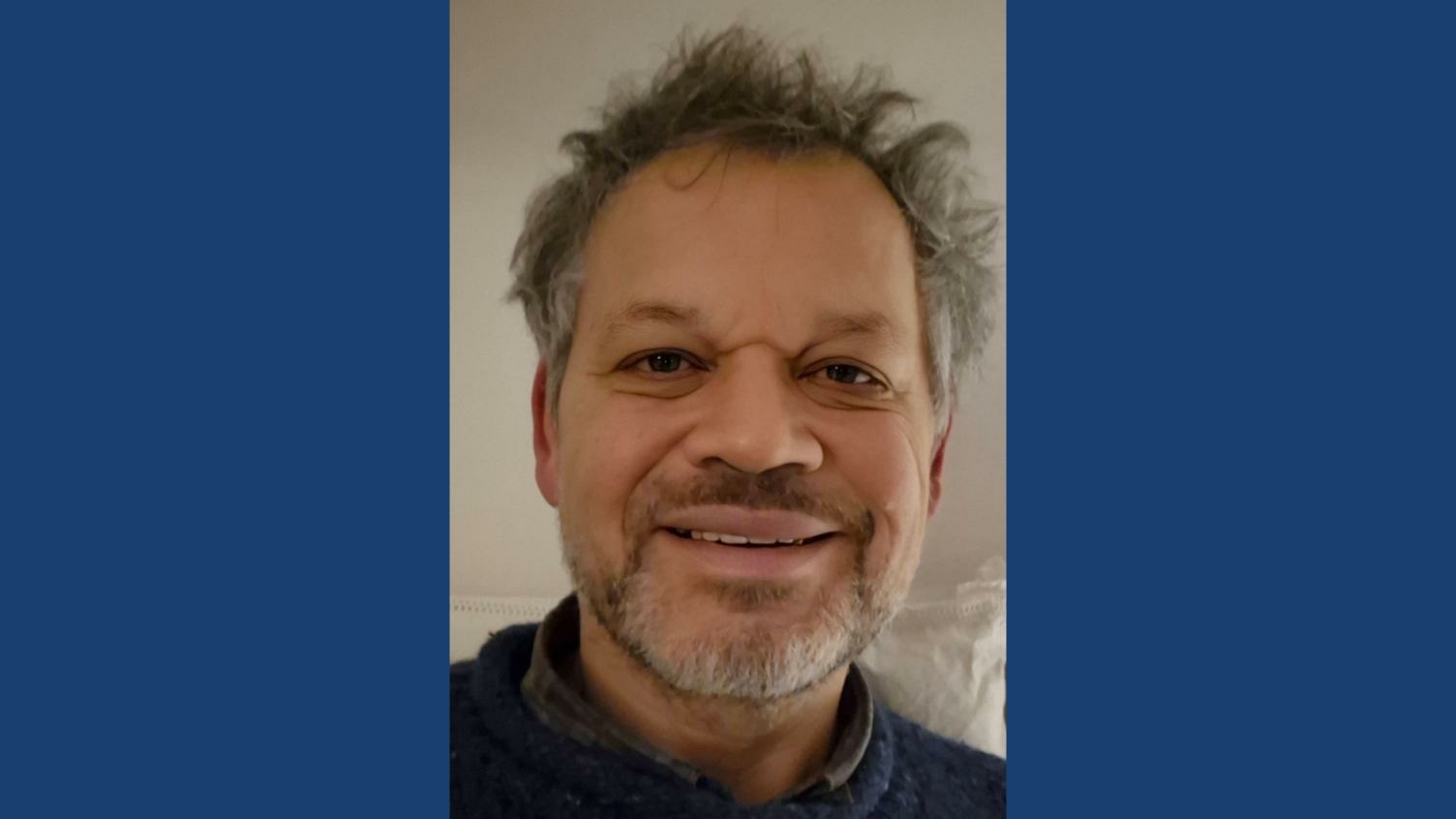Young Stroke Study participant shares his experience of taking part in research
- 10 June 2022
- 3 min read
Paul Sparrowhawk, 44, took part in the Thames Valley Young Stroke Study (TV-YSS) after experiencing a stroke. This is his story of taking part in research.
Paul's Story: Thames Valley Young Stroke Study
Paul Sparrowhawk, 44, took part in the Thames Valley Young Stroke Study (TV-YSS) after experiencing a stroke. This is his story of taking part in research.
"I've always considered myself quite fit and healthy for my age. I've always kept to a healthy weight, ate well and kept myself active with things like exercise and lots of walking."
Paul was leading a fairly comfortable and peaceful life; as the owner of a small building business, he always kept himself healthy and active to meet the demands of his job.
"I know it's difficult to categorise these things, but I never felt I was in danger of having a stroke. I've never had any issues with my blood pressure or cholesterol. Even when I was in hospital after the stroke and they tested me for these health concerns, I didn't have them then and I still don't".
Approximately 10-15% of all strokes occur in patients aged under 55 years. This is referred to as a young stroke, which can lead to a large number of years lost to ill-health. More worryingly, as rates of overall strokes (mostly in patients over 65) begin to decrease, the rate of young stroke in high-income countries continues to rise.
Paul was admitted to the Great Western Hospital in Swindon in December 2021 after he experienced a stroke. It was here that he was approached about taking part in TV-YSS, a study that was being delivered at Oxford University Hospitals NHS Foundation Trust.
"I was in hospital after my stroke, getting ready to be discharged, and I was asked if I would be interested in participating in the study.
"Straight away I said yes, it was a no brainer for me. Even my doctors were shocked that I had experienced a stroke given my test results. I didn't see it as something I would do to benefit myself; I had already had a stroke and nothing could change that. But, if in some small way I could help research to potentially be able to prevent strokes happening in people like myself in the future, I wanted to do it".
TV-YSS is an observational study supported by the National Institute for Health and Care Research, that aims to explore explanations for the increase in strokes in those aged under 55 years old. The study, which is recruiting patients aged 18-55, has a particular focus on determining the contribution of treatable vascular risk factors in younger stroke patients. As well as clinical routine investigations, participants receive additional non-invasive investigations at a face-to-face visit in Oxford. The study will follow up with participants annually and in the meantime, they are given details on how to contact the team should they have any questions.
"From the moment I left the hospital the research team were very attentive and checked that I felt well enough to take part. They even offered to pay for a taxi to take me to and from the site in Oxford. Once I got to the research site the team was fantastic! Always professional, friendly and easy to get along with.
"Having a stroke so suddenly left me petrified when I came out of hospital. I was constantly worried when I might have another one. However, once I got home from Oxford I received follow-up calls from the team, which helped massively. The team is very knowledgeable in their field, and I felt I could ask them any questions I had. They also gave me a heart rate monitor and a blood pressure monitor to take home as part of the study. This really put my mind at ease, more so than I feel I would have with usual care alone.
"My message to anyone else approached about taking part in this study is please do it! It doesn't take up too much of your time and really gives you something to focus on once you come out of the hospital. If a study like this had happened ten years ago, who knows, maybe that would have helped to prevent myself or someone else from experiencing a stroke at this age".
Anyone can get involved in health research. Find out which research studies you can be involved in and how you can take part in research by visiting the Be Part of Research website.


